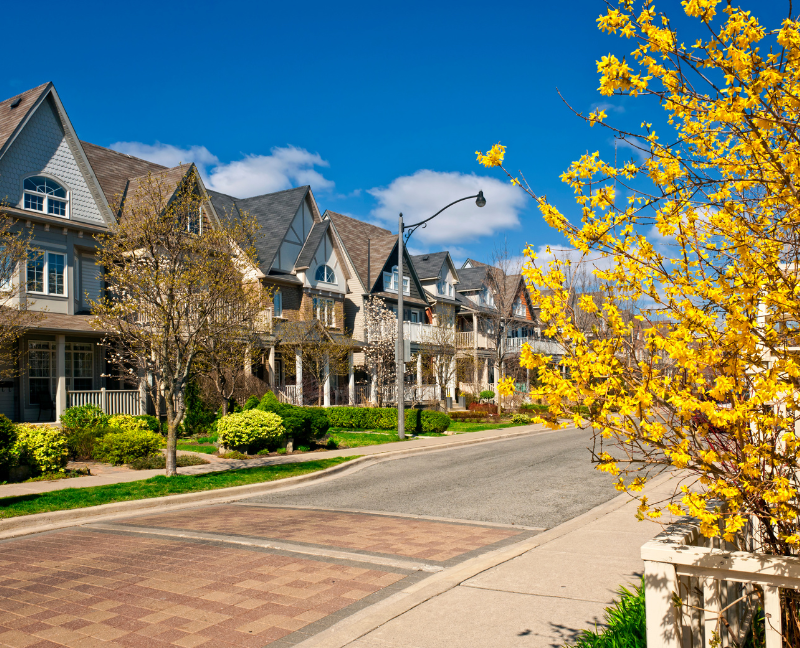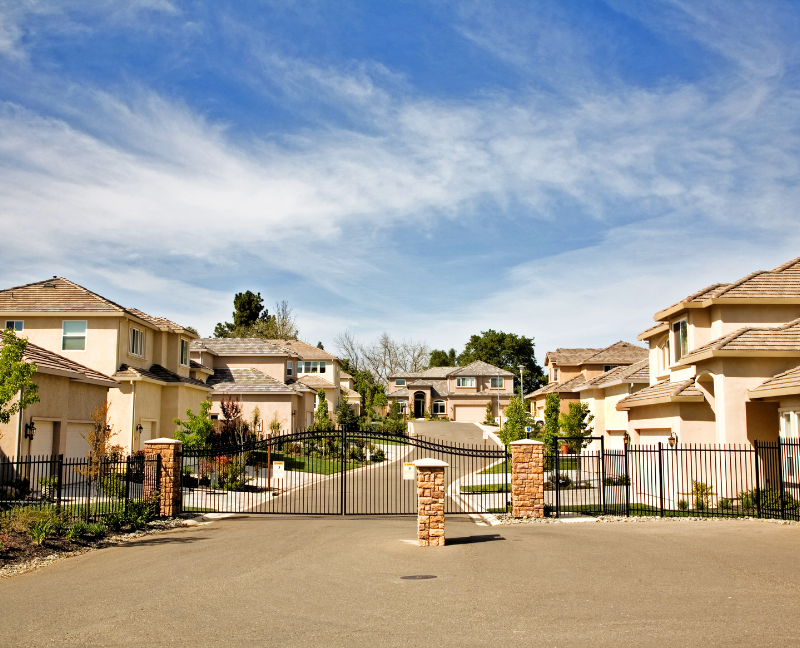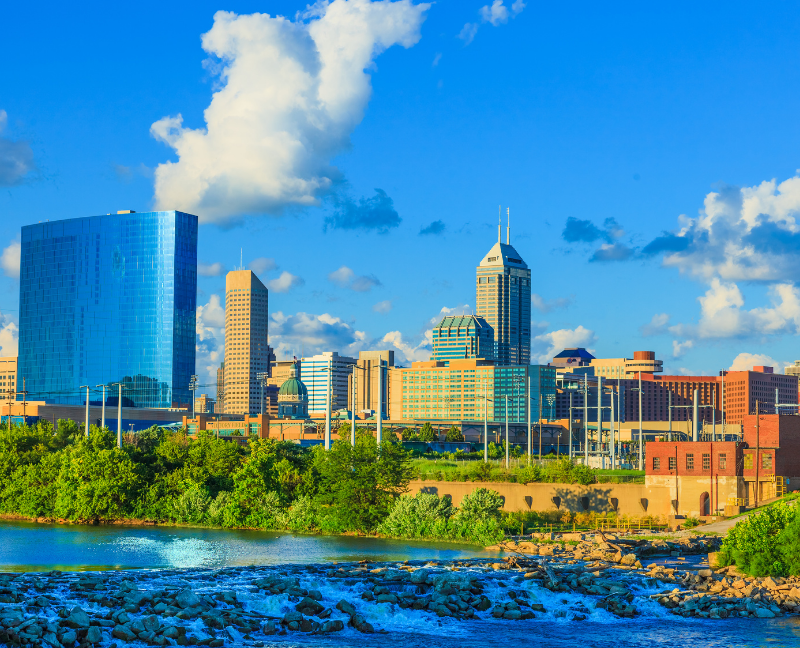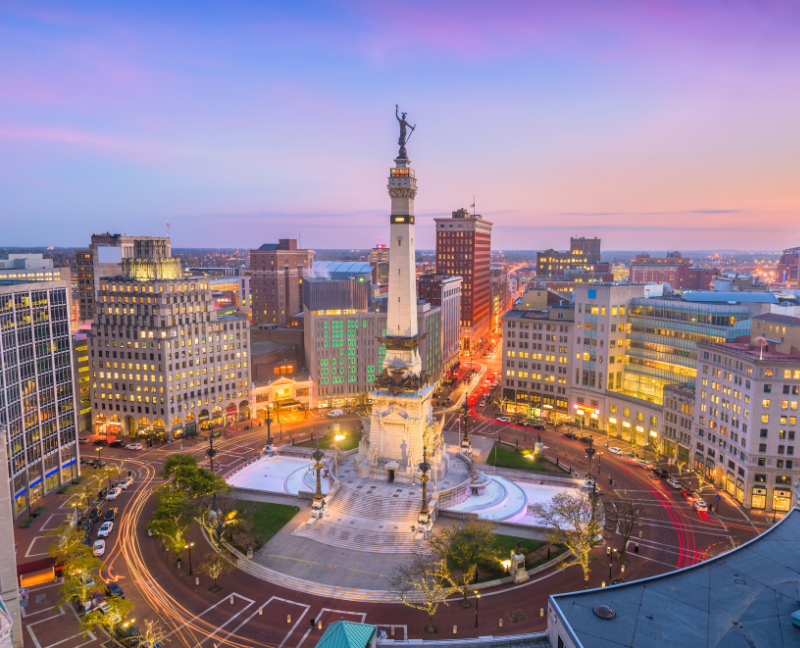In this day and age, it is quite rare for a person or family to have much control over when they move. Whether your growing family makes it so that you need more space or your job takes you to a new city, most people often have a window of a few months or at most, a year within when to move.
If life has made it so that you need to sell your house, or if you're one of those lucky few who has a bit more freedom in the choice, you're probably asking yourself if now is the right time to sell your Indianapolis home.
Prices are certainly lower than they were in years past, but that's not always a bad thing for people who are looking to sell. It may be that by selling your current Indianapolis home, you'll be able to upgrade to a bigger place or a nicer area without spending nearly as much as you would've had to in years past. This is also an ideal market for purchasing foreclosed homes, which can be bought for significantly less than their market value.
But, the question, however, is this: is NOW the best time to sell a house in Indiana?
When it comes to the best time to sell a home, it depends on your goals. For instance, are you going to put your property on the market for profit or sell it quickly?
The best time to list homes for sale in Indiana is in May, June, and July. In July 2023, the median selling price for homes was $258,600, which is expected to increase this 2024.
On average, homes stay on the market for 41-43 days during June and July. This makes it 10-15 days shorter than the rest of the month, making these months the best time to close a home sale.
However, there are people who have strict home-selling timelines, and these are usually the ones who have to relocate because of work location. Normally, they do this during November and December.
Properties listed at the beginning of the week, let's say Monday or Tuesday, often stay longer on the market.
If you want to improve your chances of selling your home quickly, list it on Thursday. This is the "pre-weekend" and they have time to look at online listings and plan their open homes tour.

As always, the best time to sell a home is during spring; however, if you want to sell it quicker and for a higher profit, it's recommended to list your property in late spring or early summer.
Putting your home on the market during these seasons is better because of the following reasons:
Winter, however, can still present a chance for a warmer climate home sale. Investing in a vacation home is the reason why buyers travel to Indiana.
When selling a home, here are the things you need to consider:
Work - Whether it's a better job offer or a current one requiring you to move into a new location, this might force you to sell your home in the market.
Neighborhood - Perhaps you're looking for a home closer to your kid's school or you want a safer school, this might call for a relocation.
Divorce - After a divorce, the ex-couple might decide to sell a home for practicality and perhaps, sentimental reasons. That said, moving to a home is not just an option but a decision to make.
Interest Rates - The demand for mortgages is increased by lower interest rates. This has an impact on the real estate market, which raises property prices.
Economy - The employment rate, GDP, manufacturing activity, cost of goods, and other economic variables all have an impact on the Indiana real estate market.
Government Policies - The government can introduce tax credits, subsidies, and deductions to establish a housing market that is advantageous temporarily.
Downgrading - You can sell your bigger home and move into a smaller one if you're trying to reduce your property taxes, homeowners insurance, and HOA dues.
Affordability - The affordability of buyers is influenced by the average mortgage rate. Make sure to find out ahead of time whether interest rates are rising or falling.
Equity For A New Home - You can sell your current house when the equity has grown to the point where an adequate down payment is required.
Want to know more about Indiana's real estate market?
To learn more about the current housing market and find out how your home would fare compared to other Indianapolis homes for sale right now, talk to us today so we can assist you with your concerns.
By working with an agent at RE/MAX Advanced Realty, you can be sure that regardless of market conditions, your home sale will be handled professionally and as quickly as possible. A RE/MAX realtor can also help you find your next home, wherever you may be looking.
In Part 1, we've tackled what real estate agents do and what qualifications are required to be a real estate agent. In this second part, we will continue discussing what skills real estate agents need and some other important things you need to know.
Real estate agents require interpersonal and technical skill sets to succeed. These are some crucial skills that can help you thrive in your career.
A good communication skill is essential to a real estate agent's workweek. After all, most of their days consist of talking with purchasers and sellers to understand both parties' objectives. Then, they will discuss on their customers' behalf during the negotiating process.
In addition to this, they communicate with third parties on their clients' behalf, including home inspectors, property managers, and legal organizations.
Furthermore, not only do real estate agents need strong verbal communication skills, but they also need to have strong writing abilities to prepare and update contracts and communicate through Internet channels, including social media platforms and emails.
Real estate brokers need skilled negotiators to guarantee that their customers pay a reasonable transaction price. For instance, a real estate agent representing a seller might negotiate a more excellent price on a piece of property than the buyer offers.
The real estate agent representing the buyer would suggest that the seller drop the price of the home they're selling or provide some other service or benefit to make up the difference. Buyers can either request that the seller pay for any necessary maintenance before the sale is finalized or negotiate that a lower price is appropriate to compensate for any potential upkeep issues with the property.
Real estate brokers must have a solid understanding of both state and federal property laws. This means that they must be able to use the rules and regulations they are familiar with to educate customers and assist them in navigating the process of property transactions.
Since certain transactions, such as changing the title of inherited properties, adhere to a specific set of legal criteria, real estate brokers must understand how the law should be applied in various settings.
In other circumstances, real estate brokers might coordinate their efforts to close transactions closely with staff of other legal departments. Better knowledge of property laws can help real estate agents collaborate more successfully with legal teams.

Now, the exciting part... the compensation.
In Indiana, real estate agents make an average of $85,090 annually. The context in which a real estate agent works, their degree of education, their years of experience, and their area of expertise can all affect their typical pay.
Sales commissions primarily determine salary for real estate agents; thus, those who sell more, market more costly homes, or charge higher commission rates may make more than others.
For instance, when working in luxury real estate, your typical salary may be higher because the houses you sell are worth more money.
The Bureau of Labor Statistics assesses a 5% job growth for real estate brokers between 2021 and 2031. The increase depends on area, market specialty, and economy. Economic factors may increase demand for real estate agents in specific market niches.
Residential real estate agents may benefit from robust economies. Agents can prepare for demand variations by working in property management until conditions recover.
Looking for a reliable real estate firm that can help you grow personally and professionally? If yes, RE/MAX Advanced Realty - Indy Home Pros is here to help!
Recognized as the top RE/MAX Team in Indiana, we are confident that we have the tools and support you need to help you grow.
Learn about our requirements here.
There are many reasons why people buy a house. For some, it's motivated primarily by security and safety, thus the consideration of living in a gated community.
Homes in gated communities are widely available for purchase around the nation, but why are they so appealing?
In this post, we'll try our best to answer why some homeowners choose a gated community.
Living in gated communities has many benefits. Although no area is 100% safe, those with heightened security offer many safety advantages.
The main reason individuals move to gated communities is safety. The gated community prevents thieves, vandals, and outsiders from coming easily. Since residents in a private neighborhood know one another, it's easy to spot strangers. And this contributes to a lower crime in the neighborhood.
Everywhere, speeding occurs. Drivers driving from busy main highways into quiet neighborhood lanes often speed or drive dangerously, endangering children and driveway backers. Before entering a gated neighborhood, cars must stop to assess the environment and lower their speed to residential limits. In most gated communities, speeding citations can be issued, making pedestrians and children safer.
Parents can relax in guard-gated communities with minor crimes and speeding. High security makes guard-gated neighborhoods safer for children and pedestrians. Safety is improved for joggers, bicyclists, dog walkers, and anyone who appreciates walking near roads without concern.
Safety is crucial in these communities. Controlled access means that only residents or friends of residents can enter a guard-gated neighborhood. Safety and security are increased by security cameras that record who enters and departs these communities. Gated communities reduce unwanted traffic and raise awareness of who comes and goes.
These neighborhoods have pleasant neighbors who enjoy socializing. Being neighbors builds trust, reducing daily worries about family and property safety. Gated communities hold parties and events that bring people together.
Additionally, most gated communities have an Architectural Review Board that strictly regulates home and lot design, building, and look. This prevents unattractive houses and neglectful neighbors. An unspoken agreement arises amongst gated community inhabitants. They help neighbors and look out for one another.
In complexes featuring community facilities like pools, tennis courts, and golf courses, restricted access and traffic create privacy. These neighborhoods are monitored more, allowing inhabitants to enjoy their pastimes secretly. Every member of the community wants privacy and gives it to their neighbors.

Each gated community offers luxury residences. Condos, single-family homes, and elegant villas built to high standards and codes are typical. Buying a home in one of these neighborhoods costs more, but it will be worth more when you sell it. Gated communities may increase in value due to their exclusivity, especially in areas where new homes cannot be built.
HOAs set covenants, conditions, and restrictions in gated communities. These requirements cover common area, amenity, landscaping, roads, and pathway maintenance. Gated communities' grounds are maintained due to higher standards—positive effects on property, value, safety, and community aesthetics.
Eco-friendly communities are sought by those who value living there. In many luxury gated communities, energy comes from solar, wind, and water. Green homes in these neighborhoods use eco-friendly materials and are energy-efficient. Living in such a neighborhood will save money on your electric bill and save the world. Living sustainably is healthy and good for the environment.
Gated communities frequently provide modern amenities for active lifestyles. As a resident of one of these communities, you'll likely have access to a contemporary gym, sports courts and fields, clubs, pools, and other amenities. Many gated communities have golf courses within or near the gates. Most fitness centers provide daily sessions and lessons to improve your game, remain healthy, learn something new, or do all the above.
The design and ambiance of a gated community are essential. These communities are usually built to be beautiful and valuable. They have many parks and open spaces for relaxation. Gated communities have well-kept landscaping year-round. Noise is low, and the environment is peaceful. Additionally, most gated communities have large bike and walking pathways for morning walks and evening cycling.
As mentioned, gated communities offer more than safety. The main advantage of a gated community is safety. Still, there are others, such as leading an active lifestyle, supporting an eco-friendly environment, enjoying quiet, and having a fantastic sense of community.
First time buying a home in Indiana? Then look no further! In this post, we'll list down the programs and grants offered to homebuyers in Indiana.
Hoosier housing prices are considerably lower so if you haven't bought a home before, this might be good news. But wait, there's more! Indiana helps first-time homebuyers greatly. You may move into a new home sooner if you qualify for down payment assistance.
Below are some essential details on buying a home and the home-buying programs and grants they offer.
According to the Indiana Association For Realtors, Indiana's July 2023 median house sale price was $258,700. Over the past year, that price fell 3.8%. However, high housing prices can make down payment savings challenging.
Luckily, there are various financial assistance to choose from:
Loans for Indiana First-Time Home Buyers
At a 20% down payment, first-time homebuyers in Indiana can acquire a conventional loan with a low-interest rate and without PMI. Indeed, few first-time buyers are saving 20%.
Some low-down-payment mortgage programs allow borrowers to buy a property with 3% or even 0% down:
FHA, VA, and USDA loans need principal house purchases. Therefore, these loans cannot be used for vacation or investment properties. In most programs, you can use the given money or Down Payment Assistance (DPA) for your down payment and closing costs. Meanwhile, your mortgage loan may allow you to buy a house with little cash. Your lender might recommend a first mortgage program based on your finances and home purchase aspirations.
Indiana Home Buying Programs
The Indiana Housing and Community Development Authority (IHCDA) discounts FHA and conventional mortgages. Though specific target communities offer these, first-time homebuyers are the primary beneficiaries. As with state-run mortgage schemes, you must choose an IHCDA-approved lender. There are also income and housing price constraints. A 640 or 680 credit score is required if you have many debts.
Indiana Home Buyer Grants
Assuming you'll live in your new house for nine years, the IHCDA's down payment aid programs are better than many states.
These programs allow you to borrow 3.5% to 6% of the sale cost for:
Better, a DPA loan has no monthly dues or interest; your loans will be forgiven after nine years of home ownership without refinancing. Throughout those nine years, you must repay every cent borrowed if you sell, move, or refinance. Think about the long-term homeownership goals before signing up.

The IHCDA First Place Program
First-time homebuyers, homebuyers in target areas, and veterans who qualify can borrow up to 6% of their purchase price under the First Place Program. This help is a forgivable second mortgage for 30-year FHA mortgages.
The second home loan comes with zero interest and monthly payments. After nine years, if the buyer doesn’t sell or refinance, it’s forgiven. The First Place Program won’t work with the mortgage credit certificate.
Borrowers have to fulfill the following DTI and FICO score requirements:
The agency regulates single-family homes, condos, townhomes, planned unit complexes, and mobile homes. In addition, the buyer’s income must meet agency requirements. Remember that most eligible applicants have moderate to low incomes.
The IHCDA Next Home Program
Indiana Housing may help first-time and return homebuyers via Next Home. However, a 30-year FHA loan is necessary. Still, you can utilize the 3.5% purchase price for your down payment.
The down payment subsidy is forgiven after two years if you don’t sell or refinance. Aid and mortgage credit certificates can be combined.
Helping To Own (H2O)
The Helping To Own Program provides up to 3.5% of the FHA loan down payment; however, only Indiana first-time homebuyers qualify.
There are choices if IHCDA home buyer help did not work for you -- one is to ask your loan officer or two, a realtor for local down payment grants and loans.
All the organizations mentioned should offer free help to first-time homebuyers in Indiana or their localities. HUD offers statewide, regional, and local resource lists in addition to:
Have more questions? Send us an email or call us at 317-316-8224 today!
In the first part, we learned some facts about Indiana, the average salary of those who live there, the status of the job market, its population, the cost of living, weather, and climate, and many more.
Now, we'll dive deeper into the Hoosier State and discover more things about this beautiful place.
The rate of violent crime in Indiana is slightly higher than the national average. According to recent data, there were approximately 400 violent crimes and approximately 2,600 property offenses per 100,000 persons. Indiana's violent crime rate is thus around 9% higher than the national average. Property crime was close to the national average.
On the other hand, the place offers some fantastic cities and villages. The Northwest Indiana region is home to nine of Indiana's top twenty safest cities. St. John was ranked first, Crown Point was ranked fourth, and Valparaiso was ranked fifteenth.
Because five distinct interstates intersect in Indianapolis, IN, Indiana is known as the "Crossroads of America." Indiana is the entryway from the east coast to the west coast. The rail system in the United States is vital to the highways that transport products. Indiana is home to several major freight rail lines. Indiana is home to rail intermodal, the Ohio River canal, and the Port of Indiana on Lake Michigan.
You will need a place to reside whether you are relocating to Indiana or visiting for another purpose. Indiana real estate, homes, and houses will continue to be in high demand in 2020. In 2019, the number of homes for sale in Indiana climbed by 3% to slightly more than 4%. Several factors are contributing to Indiana real estate's high demand and value growth.
Real estate values in Indiana rise as a result of both business and inhabitants. Indiana is a low-regulation, business-friendly state. The minimum wage is cheap, schools are excellent, and public services are extensive. Furthermore, tax rates in neighboring Illinois are encouraging more firms and residents to relocate to Indiana. Finally, Indiana has shown to be a secure, thriving state that is also a fantastic location to live.
Northwest Indiana real estate had some of the most significant improvements in 2019. Last year, the number of homes for sale in Northwest Indiana climbed by 5.6%. We anticipate that this tendency will continue. The most significant contributing elements are the increased number of residents from Illinois and the recent economic expansion in Northwest Indiana.

One advantage of residing in Indiana is the state's dedication to environmental preservation. Indiana is home to some spectacular natural places.
The state's northern boundary is with Lake Michigan. You can visit the Indiana Dunes State Park and the Indiana Dunes National Park while you're here. You may relax on the beach, climb the sand dunes, or go for a trek through the woodlands along the lakefront.
Hoosier National Forest is located in the state's south. The United States manages this forest preserve. The Forest Service. The Hoosier National Forest encompasses about 200,000 acres of property in southern Indiana's Appalachian foothills.
Indiana's culture is diverse. There are several densely populated places in Indiana. Among these are Ft. Wayne, South Bend, Indianapolis, and the Northwest Indiana region all within commuting distance of Chicago, the third-largest city in the United States. These regions have the commerce, entertainment, and cuisine that you would expect to find in a bustling metropolis.
There are several smaller cities in between, separated by extensive farmland. This provides tremendous balance for Indiana people. Those who reside in the city might live a more urban lifestyle. People who live in the country might enjoy a calmer, more communal existence.
Indiana has a little bit of everything, so there is something for everyone. When you need a change of scenery, get in your car and drive down the highway (Indiana is known as America's Crossroads) to meet a new portion of this great state.
Here are some things to consider before relocating to Indiana.
Whether you're planning to move to Indiana or want to learn more about real estate in this area, our team at RE/MAX Advanced Realty - Indy Home Pros is more than willing to help.
With 8 years of average experience as a real estate agent, we ensure to make your relocation plan seamless and hassle-free.
Contact us by clicking this link!
It is simply a matter of being familiar with Indiana to determine whether or not it is a good decision to relocate there. This guide will help you get familiar with the state and determine whether Indiana is an appropriate area for you to reside.
Before you move to Indiana, you probably want to know how much money people in Indiana make. According to the latest recent data, the average wage in Indiana is over $47,000, and the average household income is around $55,000. Personal per capita income in Northwest Indiana is somewhat less than $46,000. The average salary in Indiana's capital, Indianapolis, is over $52,000, 10% higher than the state average. Learn more about the typical Indiana income across the state.
The state's job market provides an answer to the issue of why relocate to Indiana. Indiana is home to small, medium, and large firms. Indiana's key sectors include agriculture, energy, manufacturing, steel production, healthcare, and professional services. Manufacturing employs around 17% of all nonfarm employment. Major corporations are concentrated in medium and bigger cities. One of the advantages of relocating to Indiana is that the state has a lower unemployment rate than the national average.
Certain industries in Indiana are heavily concentrated in tiny geographic areas, which is a distinctive feature of the state's economy. Northwest Indiana, for example, is home to some of the major steel mills in the United States. More than half of the blast furnace capacity in the United States is located in Lake and Porter Counties.

Another example is that 80% of recreational vehicles (RVs) manufactured in the United States are constructed in Northeastern Indiana, in places like Goshen. Elkhart County is known as the "RV Capital of the World," whereas Warsaw, Indiana is known as the "Orthopedic Capital of the World" due to the presence of three large orthopedic medical equipment firms.
Here are some more details on the Indiana job market:
The population of Indiana is increasing. Indiana now has a population of approximately 6.79 million people. This is a 300,000 increase over 2010. More information about Indiana's current population can be found here. In addition, the Indiana University Kelly School of Business publication INContext offers an excellent chapter on Indiana's predicted population growth until 2050.
Many surveys have placed Indiana as one of the most affordable states to live in. Yes, our wages may be slightly lower than those in other states. We make up for it, however, with a low state-income tax rate, constitutionally protected property tax caps, near access to important resources, and a competitive business environment that welcomes new companies.
According to U.S. News & World Reports, Indiana is the third cheapest state. If you search the internet for this question, you will most likely discover multiple studies ranking Indiana as one of the top ten most affordable states.
The four seasons have been experienced in every section of the state. Winter, on the other hand, is a wildcard. Temperatures in the spring and fall are mild, with highs in the 50s and 60s and lows in the 40s. Summer brings days in the 70s, 90s, and even over 100 degrees. Winter is a wild card.
Indiana is a large state that stretches for 250 miles from north to south. The southern portion experiences snow and cold in the winter, as does the center section, albeit slightly more and slightly colder. Northern Indiana, on the other hand, has all the hallmarks of a hard midwestern winter.
Lows in the teens and single digits are common in Northern Indiana throughout the winter. Temperatures below zero are not uncommon. Northern Indiana has the most snow, and there is a phenomenon known as lake effect snow in a few select areas.
In essence, snow bands form off of a huge body of water, like Lake Michigan, and, if conditions are ideal, these bands will dump snow on a region. I have always resided in northern Indiana, which is one of the select locations where this occurs occasionally each year. Sincerely, there was a time when my neighborhood had a 20-inch snowfall in a single day. They had five inches at two miles. They had none five kilometers distant.
The educational system of Indiana is strong. In Indiana, approximately 87% of students complete high school. Of those, over 63% enroll in colleges right away. You may get more information on Indiana's schools here. The Indiana Department of Education works hard to make information about the state's public schools readily available.
Indiana's colleges and universities are among the best in the country. In the past, Purdue University excelled in the sciences and math, producing generations of graduates. Indiana University, Notre Dame, Ball State, Butler, and Valparaiso University are a few of the state's other prestigious universities.
These are just some of the basic things about Indiana. In our next post, we'll learn more about this beautiful Hoosier State.
Check out this amazing value! Listed at 34,000 won't last long! This 3 bedroom 1.5 bath condo features main level entry and 1 car garage. Call the Indy Home Pros Team at 317-298-0961 for showings!
Search Indianapolis HUD Homes for Sale
In today's economy many potential home buyers are looking for a home at a great value. HUD listings may be the answer. Many Indianapolis HUD homes can be purchased for as little as 100 dollars down using FHA financing. Most HUD homes are sold at a reduced amount due to needing a little fix up and repair. HUD homes are not always the right fit for some potential home buyers. One of the other great programs that HUD offers is the FHA 203K loan. This loan allows for buyers to finance in the cost of repairs and updates! With that said HUD homes in Indianapolis area can be of a great value. For information on HUD homes in Indianapolis, Avon, Brownsburg, Danville, Greenwood, and all of central Indiana call the Indianapolis HUD home experts RE/MAX Advanced Realty - Indy Home Pros Team 317-298-0961
Just listed at 120,000 located in Avon Community School system 1515 Danielle Drive Indianapolis Indiana REMAX. Home features 3074 sq ft of open living space 3 bedrooms and 2.5 baths home was built in 2006. Home is HUD owned and can be purchased for as little as 100.00 down! Call The Advanced Realty Team at 317-298-0961 for showings! Let us show you how to roll in the cost of improvements with your loan! 1515 Danielle Drive Indianapolis IN 46231

8313 W. 10th St
Indianapolis IN 46234
dennis@indyhomepros.com
317-316-8224